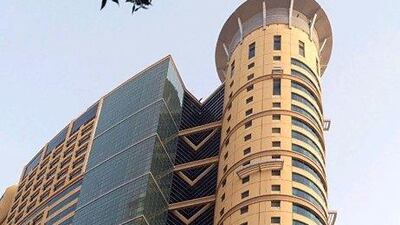The global hotel brand Millennium has suspended plans for hotels in Egypt, Syria and Tunisia, a sign that foreign investors are still avoiding Arab Spring countries as uncertainty persists.
Economic growth in the Middle East and North Africa (Mena) slowed by more than half to 1.7 per cent last year as unrest spread across the region. Growth is forecast to recover modestly this year.
"We had to slow down on the fronts where we thought there were problems," said Ali Hamad Lakhraim, the president and chief executive of Millennium & Copthorne Hotels for the Middle East and Africa.
"With all of what's going on for the last year because of the Arab Spring, things have changed dramatically. Syria we were talking to people; Egypt we were talking in Cairo; Tunis we had an [memorandum of understanding] signed, which was affected as well."
The project in Tunisia, which was being developed by an investor from the GCC, is on hold, he said.
"There are more priorities now for the people in Tunisia than developing a hotel. People who are also investing into these countries are [in wait and see mode]."
Millennium is one of the largest hotel brands in the world, with 120 properties under management. It is majority-owned by CDL of Singapore and is publicly listed in London. Other hotel management companies, including Abu Dhabi's Rotana Hotels, have also suspended projects in Syria because of the unrest there.
"There is very much a dichotomy among the regional economies," said Jarmo Kotilaine, the chief economist at National Commercial Bank in Saudi Arabia.
"There are countries that are seen as stable that are developing pretty much as usual, and then there is this cluster of problem countries where things are to varying degrees on hold.
"Certainly in sectors such as hospitality, it's clear if you look at the data on hotel occupancy, for instance, in a number of countries the levels are way down, and there just isn't the demand to justify the kinds of investments that people had been planning on very different assumptions previously. So we're talking Egypt, Syria, to an extent even Bahrain."
The World Bank predicts that growth in Mena is likely to remain depressed this year, at about 2.3 per cent.
"In countries such as Egypt and Syria we're still not seeing a very clear end-game. The situation is in some sort of limbo," Mr Kotilaine said.
Demand for hotels has yet to recover in North Africa and the Levant, analysts say.
In Cairo, occupancy levels at hotels declined by 44.9 per cent to 36.1 per cent last year, according to data issued this month by STR Global. In the Middle East and Africa, there was a 6.8 per cent decrease in occupancy to 57.1 per cent.
"A sense of insecurity across northern Africa and Egypt has led leisure and business travellers to seek alternative destinations," said Elizabeth Randall, the managing director at STR Global. The flight out of North Africa has benefited the Arabian Peninsula, where demand rose by 13.2 per cent, she added.
After-effects of the crisis continued last week as Royal Jordanian announced it was suspending flights to five destinations because of regional unrest and high fuel prices.
But Millennium, which has its regional headquarters in Abu Dhabi, has already started to revisit the opportunities it was studying before the revolution in Libya.
"We had final discussions on five properties in Libya, which [were] obviously totally put on hold," said Mr Lakhraim. "I was in Libya three weeks ago and visited most of the projects that we were talking about."
The changes that have occurred in Libya could actually create more opportunities for the hotel chain.
"I think we will get more than what we thought," Mr Lakhraim said. "I think it's a fairer game now. I think the new government and the young people of Libya will like to see their country prosper and revived again."
Millennium is hoping to sign agreements in Libya this year.
The company is continuing to grow elsewhere in the region, with a strong focus on the UAE and Saudi Arabia. It opened its Millennium Plaza hotel in Dubai at the beginning of this year, and plans to open a hotel-apartment property in Abu Dhabi in September and a 640-room hotel near Emirates Palace early next year.
Other destinations that were previously off the radar because of insecurity are gaining more interest.
Millennium is also negotiating more contracts in Iraq. The company expects to open two hotels in Sulaymaniyah this year and is refurbishing and rebranding two former Sheraton hotels in Baghdad and Basra.
"Iraq of course is not the easiest market," said Mr Lakhraim. "We are evaluating our situation in Iraq and balancing out the risks and rewards. We are looking at various projects."
Millennium was looking at taking over the Erbil International Hotel in Iraqi Kurdistan, but this fell through because the company failed to reach an agreement with the owner on refurbishing the hotel to meet the brand's required standards, he said.
"We will have a hotel in Erbil … most likely new-build."
twitter: Follow our breaking business news and retweet to your followers. Follow us

